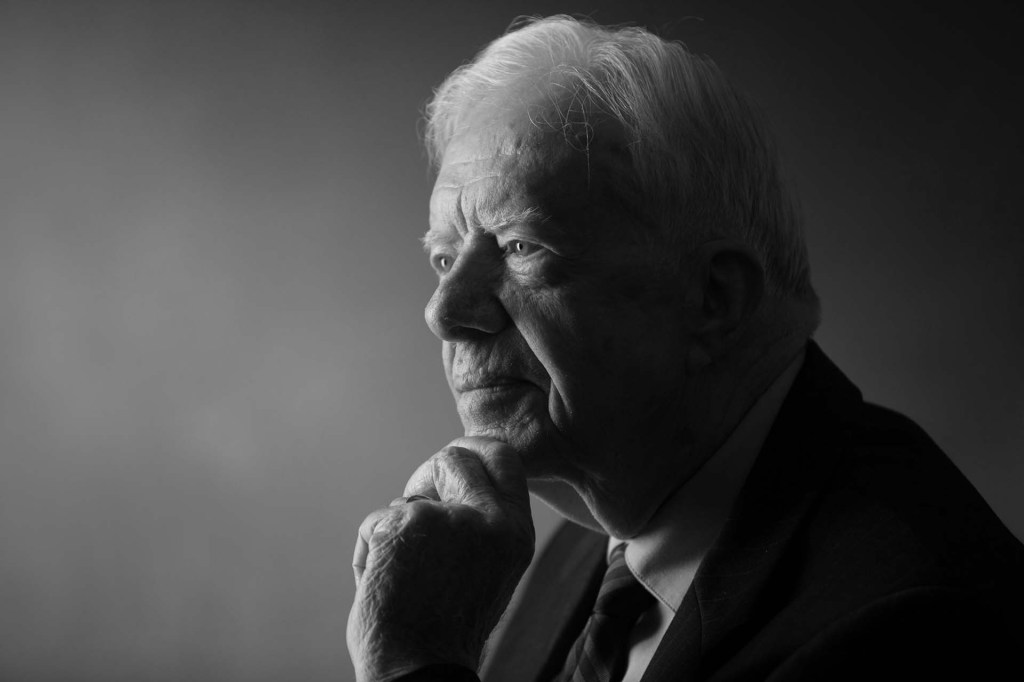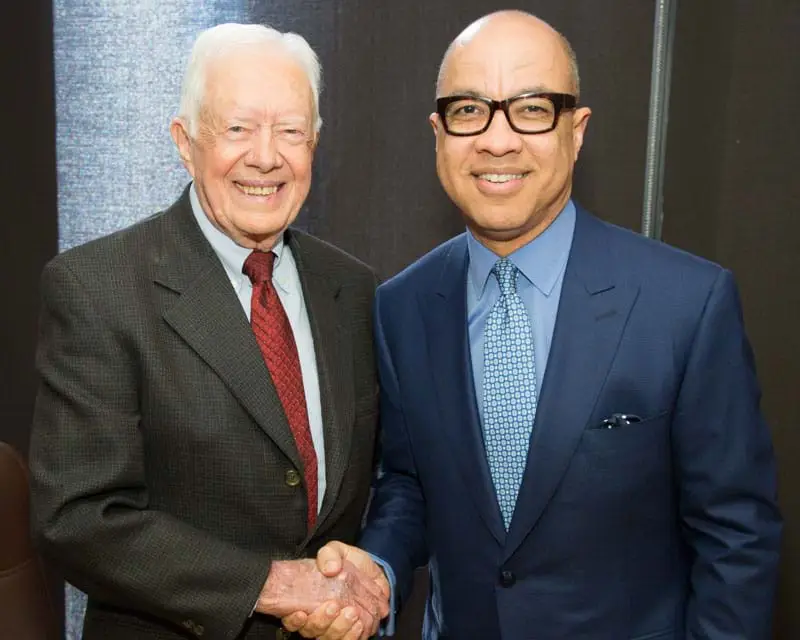 David Hume Kennerly/Getty Images
David Hume Kennerly/Getty ImagesPresident James Earl Carter Jr. was 90-years young when he last visited us at the Ford Foundation in January, 2015. I vividly remember the twinkle in his eye, the bounce in his step, as he nearly skipped through our doors and bounded into the building.
Here was the man from Plains, the epitome of decency and humility, kindness and grace. Here was, as he would later say of himself, the farmer, naval officer, teacher, activist, builder, governor, and Nobel laureate, who, from 1977 to 1981, served with distinction as the 39th President of the United States.
As a young man, I admired President Carter—among the most honorable leaders in our nation’s history—and I was later privileged to know him personally through his work with the Carter Center, a decades-long partner of the Ford Foundation. In all of his work, the president elevated those around him. Yet, he also grounded us in the timeless set of values he so fully embodied: humanity, dignity, justice.

President Carter loved America—and he loved all Americans. From Plains, Georgia to Pennsylvania Avenue and beyond, President Carter fought injustice and waged peace with fierce conviction. He drove social justice on a scale both grand and intimate: championing civil rights in the deep South and building new homes with Habitat for Humanity, expanding educational opportunity across the country and teaching Sunday school at Maranatha Baptist Church.
Of course, this American patriot was also a great global citizen because his belief in the power of democracy to bring dignity to people all around the world never wavered. That conviction propelled him to the busy streets of Monrovia and Lagos, where he served as an election monitor, and to Camp David, where he brokered a historic treaty between Israel and Egypt. His lifelong commitment to progress was equalled in his late wife of 77 years, First Lady Rosalynn Carter; she was a trusted voice in his administration and a steadfast advocate for women’s rights, mental health care, and much more.
A man of deep and abiding faith, he was, in the truest sense, a servant leader. As we honor President Carter’s life and legacy, let us heed his call to recognize—with humility, with devotion, with reverence—the enduring bond of our common humanity.
